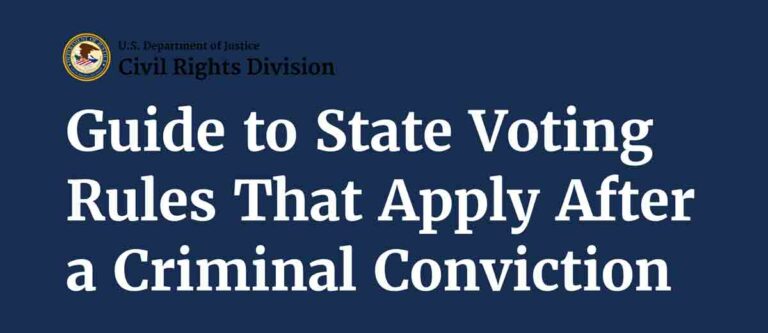FLORIDA – People seeking information about who keeps the right to vote and who can regain that right after a criminal conviction in Florida and other states now have a handy resource to help them understand how each state’s laws work.
The Justice Department (DOJ) on Friday announced the release of a guide to the state voting rules that apply after criminal convictions. The document is designed to help citizens who meet the age and residency requirements to understand how the state-by-state rules about voting after a criminal conviction could apply to them, the DOJ said.
Who keeps the right to vote and who can regain that right — and how — differs from state to state, and it depends on state law.
The guide walks readers through a series of questions to help them understand how each state’s laws work. And it gives information about how to reach officials in a particular state if someone wants to register to vote or if they have additional questions.
“The right to vote is the foundation of American democracy and it is critical for returning citizens to have reliable information concerning what voting rules apply after a criminal conviction,” said Assistant Attorney General Kristen Clarke of the Justice Department’s Civil Rights Division.
“The right to vote affirms returning citizens’ membership and belonging in the broader community. And it helps to ensure that the communities to which they belong have a meaningful opportunity to elect representatives of their choosing.”



